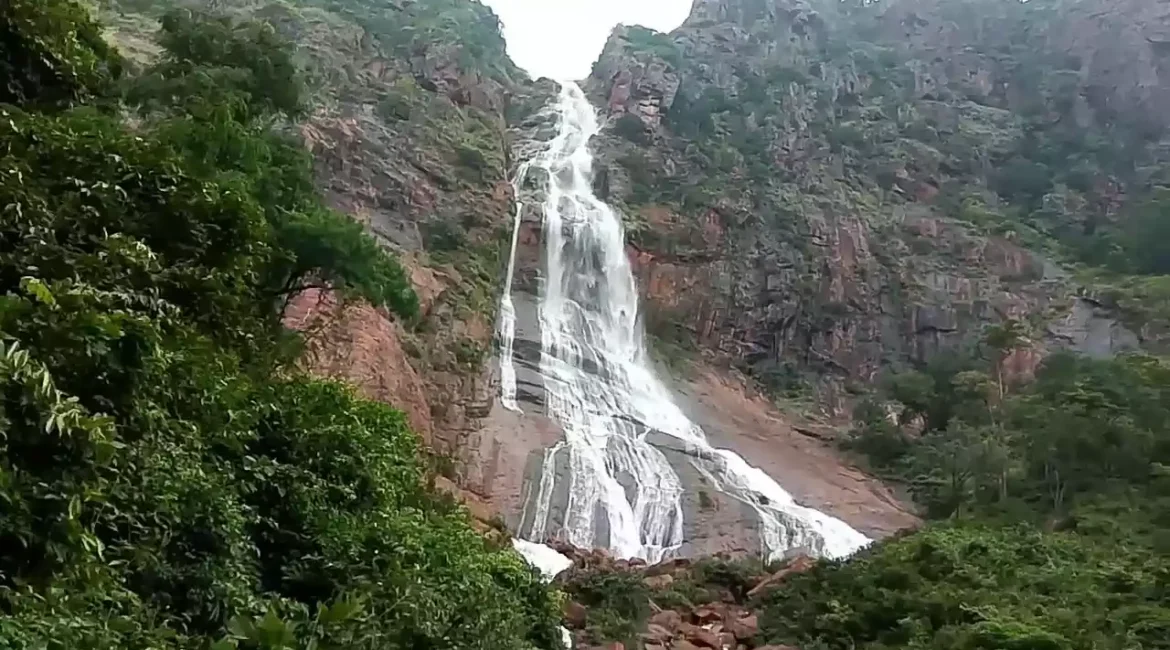Sundargarh District: An In-Depth Exploration
Introduction
Sundargarh, located in the north-western part of Odisha, India, is a district known for its rich cultural heritage, diverse geography, and historical significance. This district is a mosaic of scenic beauty, tribal culture, and vibrant traditions that make it a unique place to explore. In this article, we delve into the various aspects that define Sundargarh, including its demography, culture, geography, cuisines, history, notable personalities, and administrative setup.
Geographical Overview
Location and Topography
Sundargarh is situated in the north-western region of Odisha, bordered by the states of Jharkhand and Chhattisgarh. The district spans an area of 9,712 square kilometers, making it one of the largest districts in Odisha. It is characterized by a mix of plains, hills, and dense forests, contributing to its diverse ecological landscape.
Climate
Sundargarh experiences a tropical climate with three distinct seasons: summer, monsoon, and winter. Summers are typically hot and humid, while the monsoon season brings substantial rainfall, rejuvenating the flora and fauna. Winters are mild and pleasant, making it an ideal time to visit.
Demographic Profile
Population
According to the 2011 Census, Sundargarh has a population of approximately 2.1 million people. The district exhibits a unique demographic blend, with a significant proportion of the population belonging to various tribal communities such as the Oraons, Kharias, and Mundas. These tribes contribute to the district's rich cultural tapestry.
Language and Religion
The primary languages spoken in Sundargarh are Odia, Hindi, and various tribal dialects. The district is a melting pot of religions, with Hinduism being the predominant faith, followed by Christianity, Islam, and indigenous tribal religions.
Cultural Heritage
Festivals and Traditions
Sundargarh's cultural landscape is vibrant and diverse, marked by a multitude of festivals and traditional practices. The district celebrates various festivals with great fervor, including:
- Nuakhai: A major harvest festival observed by the tribal communities to thank the deities for a bountiful harvest.
- Karma: Celebrated by the Oraons, this festival involves singing, dancing, and worshipping the Karma tree.
- Chhau Dance: A traditional dance form that blends martial arts, acrobatics, and folk theatre, often performed during festivals.
Art and Craft
The district is renowned for its traditional art and craft, including:
- Dhokra Art: An ancient metal casting art form practiced by the tribal communities, known for its intricate designs and craftsmanship.
- Soura Paintings: Tribal paintings that depict everyday life, nature, and mythology, characterized by their unique style and vibrant colors.
Historical Significance
Ancient and Medieval History
Sundargarh has a rich historical background dating back to ancient and medieval times. The region was once part of the Dakshina Kosala kingdom and later came under the rule of the Ganga dynasty. The remnants of ancient temples and forts in the district bear testimony to its glorious past.
British Era and Post-Independence
During the British colonial period, Sundargarh was a princely state. After India's independence in 1947, it merged with the state of Odisha. The district has since undergone significant socio-economic development, transforming into a bustling hub of culture and industry.
Cuisine
Traditional Dishes
Sundargarh's cuisine is a delightful blend of tribal and mainstream culinary traditions. Some of the district's most popular dishes include:
- Pakhala Bhata: A fermented rice dish often consumed with fish, vegetables, and chutneys, especially during summer.
- Mandia Jau: A nutritious porridge made from finger millet, a staple in tribal diets.
- Mutton Curry: A rich and spicy curry made with locally sourced spices and tender goat meat.
Street Food
The district also offers a variety of street foods that reflect its cultural diversity, such as:
- Chaat: A savory snack made with crispy fried dough, yogurt, chutneys, and spices.
- Samosas: Deep-fried pastries filled with spiced potatoes, peas, and sometimes meat.
Notable Personalities
Poets and Authors
Sundargarh has produced several notable poets and authors who have contributed significantly to Odia literature. Prominent among them is Sitakant Mahapatra, a renowned poet and literary critic known for his profound works in Odia and English.
Other Prominent Figures
The district has also given rise to various distinguished personalities in fields such as sports, politics, and academia. Dilip Tirkey, a former Indian hockey player and Rajya Sabha member, hails from Sundargarh and is celebrated for his contributions to Indian hockey.
Administrative Setup
Governance Structure
Sundargarh district is administratively divided into three sub-divisions: Sundargarh, Panposh, and Bonai. Each sub-division is further divided into several blocks and tehsils for effective governance. The district is overseen by the District Collector, who is responsible for implementing government policies and ensuring the overall development of the region.
Development Initiatives
The district administration has undertaken various initiatives to promote socio-economic development, including:
- Educational Programs: Enhancing educational infrastructure and promoting literacy among tribal communities.
- Healthcare Services: Improving healthcare facilities and access to medical services in remote areas.
- Agricultural Development: Implementing modern farming techniques and providing support to farmers to boost agricultural productivity.
Tourism
Major Attractions
Sundargarh offers a plethora of tourist attractions that cater to diverse interests, including:
- Khandadhar Falls: One of the highest waterfalls in Odisha, located amidst dense forests and offering breathtaking views.
- Ghogar Temple: A historic temple dedicated to Lord Shiva, attracting pilgrims and tourists alike.
- Mandira Dam: A popular picnic spot and a source of irrigation, built on the Sankh River.
Adventure and Wildlife
The district's natural beauty and diverse wildlife make it an ideal destination for adventure enthusiasts. Activities such as trekking, bird watching, and exploring the rich biodiversity in the Sundargarh Forest Division are popular among tourists.
Conclusion
Sundargarh district is a captivating blend of natural beauty, cultural richness, and historical significance. Its unique demographic composition, vibrant traditions, and scenic landscapes make it a fascinating destination for both residents and visitors. Whether exploring its ancient heritage, indulging in its culinary delights, or experiencing its vibrant festivals, Sundargarh offers a memorable and enriching experience.
